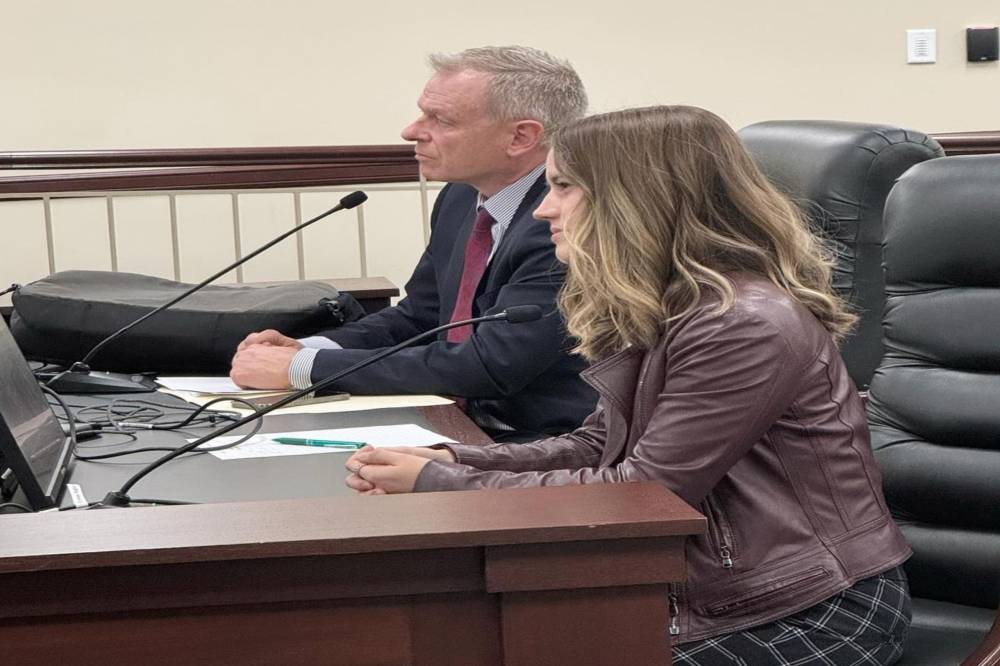Five key insights from former child influencer Shari Franke on the dangers of family vlogging
Speaking at the Utah House of Representatives, Shari told lawmakers "There is never ever a good reason for posting your children online for money or fame. There is no such thing as a moral or ethical family vlogger."

SHAH ALAM - Shari Franke, the daughter of former family vlogger Ruby Franke has recently spoken up in support of child influencer protection laws.
Shari and her five siblings were regularly featured in their mother's YouTube channel "8 Passengers," which amassed millions of viewers before Ruby was arrested for child abuse in August 2023.
Speaking at the Utah House of Representatives, United States, Shari told lawmakers "There is never ever a good reason for posting your children online for money or fame. There is no such thing as a moral or ethical family vlogger."
She highlighted that her experiences as the child of a family vlogger served as a clear example of the harm often done to children who were put in the influencing space.
Family vlogging often exploits children for profit
Shari, who grew up in the spotlight, described family vlogging as an alluring business, but with a heavy cost.
For her family, like many others, it became their primary source of income.
She acknowledged that while she was compensated for her participation in videos, the payment was often more of a bribe than fair compensation for her work.
"We would be rewarded USD$100 or a shopping trip if we filmed a particularly embarrassing moment or an exciting event in our lives.
"There is no law in place to guarantee that child influencers get any money from their work. Any payment that does happen is under the table with no paper trail. What price is worth giving up your childhood?" she questioned.
This lack of protection left child influencers vulnerable, without clear guidelines on what they were owed for their involvement in their parents' online business.
The pressure to perform is constant
For Shari and many others, there was no escape from the camera.
Children in these environments often believed they had control over what was shared with the public, but Shari now recognised the reality was different.
"The camera never stops and there is no such thing as a break from filming. At the time, I tell you I had a choice in what was filmed, but I have come to learn that every child influencer, in a way, suffers from Stockholm Syndrome," she said.
She explained that child influencers were often bribed or shamed into sharing their most private and vulnerable moments with the world.
This pressure to perform created a dynamic where children felt trapped, even if they did not fully understand the consequences.
Children could not consent to family vlogging
Shari raised a crucial point about the issue of consent in family vlogging.
She said while many child influencers may claim to have control over what was posted, the reality was that they were too young to understand the long-term consequences of sharing their lives online.
"As children, we do not understand the consequences of filming our lives and posting it for the world to see. We cannot give consent to our parents to post our lives.
"In any other context, it is understood that children cannot give consent. But for some reason, people think family vlogging is different," she said.
Child influencers are often targeted by predators
Another alarming aspect of family vlogging was the exposure given to dangerous individuals online, something Shari openly warned about.
She said paedophiles stalked the internet, specifically seeking out child influencers.
She added that her parents who engaged in family vlogging were often aware of these risks but continued to post their children's lives online regardless.
The lack of protective measures for child influencers left them exposed to harmful online environments.
Consequences that last a lifetime
Looking back, Shari expresses regret over the loss of her privacy and innocence due to family vlogging.
"If I could go back and do it all again, I would rather have an empty bank account now and not have my childhood plastered all over the internet," she said.
Shari’s experiences were not isolated, as she believed many other child influencers faced similar issues, especially in Utah, where family vlogging has gained significant popularity.
Although she did not claim to have all the answers, Shari was determined to raise awareness, stressing that family vlogging robbed her of her innocence long before her mother, Ruby committed a crime.
Shari called for action to protect children before the issue worsens.
What did Ruby Franke do?
Ruby, 42, a former family vlogger from the YouTube channel "8 Passengers," was sentenced to prison for child abuse in February, alongside her business partner Jodi Hildebrandt.
Both women pleaded guilty to four counts of second-degree child abuse after two of Ruby's children were found malnourished in Hildebrandt's basement.
Ruby admitted to torturing her son by depriving him of food, water and entertainment and subjecting him to physical labour and abuse.
Her daughter was also denied food and forced into harsh physical labour.
The case highlighted the darker side of family vlogging, where children's privacy and safety were often compromised for monetisation.
Ruby’s neglect was well-documented in her YouTube videos, including incidents like forcing her son to sleep on a bean bag for seven months as punishment.
This case exemplified the risks associated with exploiting children for viewership, emphasising the need for greater awareness of the dangers posed by family vlogging channels.













